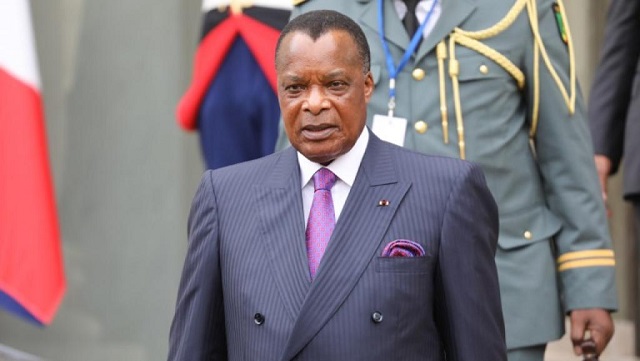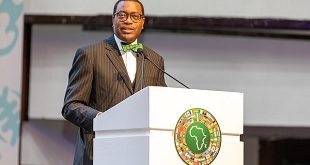
Brazzaville, Congo | AFP | Congolese President Denis Sassou Nguesso has been chosen by his party to run again for the top job in 2021, having already led the central African country for a total of 35 years.
During its congress in Brazzaville overnight Monday, his Congolese Party of Labour (PCT) unanimously named Sessou Nguesso, 76, as its candidate for president.
His re-election in 2016 sparked violence in a country where most of the five million people live below the poverty line despite huge oil reserves.
“We said the choice of Denis Sassou Nguesso is an inevitable choice,” top ally Leonidas Mottom told AFP.
“It’s the choice of change in continuity, it’s the choice of stability and the choice of peace,” said Mottom, the party’s deputy leader.
The party’s outgoing secretary general, Pierre Ngolo, said the 2,588 PCT congress participants reappointed Sassou Nguesso as head of the central committee in addition to naming him as their candidate in the 2021 presidential elections.
According to the constitution, which was changed in 2015, Sassou has the right to run again for the presidency in 2021 and for a last time in 2026.
On Thursday, the main opposition group, the Pan-African Union for Social Democracy (UPADS), said conditions were not right for Congo to organise elections in 2021.
UPADS instead proposed a transition and an election in 2023 without Sassou Nguesso on the ballot.
The PCT, which on Tuesday marked its 50th anniversary as a party, named 727 new members to its central committee during its congress from December 27-30.
They in turn elected Pierre Moussa, 78, as secretary general for a five-year term, replacing Ngolo, 65, who is also president of the Senate.
Moussa is an economist by training who worked for international financial institutions such as the World Bank.
Moussa, who served as cabinet minister several times between 1997 and 2012, was also president of the CEMAC, the Economic and Monetary Community of Central Africa, between 2012 and 2017.
Sassou Nguesso first came to power in February 1979 and headed a single-party regime for 12 years.
Under pressure, political pluralism was introduced in 1991 and the following year Sassou Nguesso lost presidential elections.
After five years as an opposition leader, he returned to power in October 1997 after his rebel forces ousted the president at the time, Pascal Lissouba of UPADS, and a two-year civil war ensued.
After a transitional period, presidential elections were held in 2002 that Sessou Nguesso controversially won.
He was re-elected in July 2009 in a poll boycotted by the main opposition candidates.
A new constitution, approved by referendum, enabled him to stand again in 2016, and he won by a first-round majority, a result that again was contested by the opposition.
His re-election in 2016 triggered unrest in Brazzaville and armed conflict in the fertile region of Pool that cut off freight trains on the vital rail line between the capital and Pointe-Noire.
The Republic of Congo, also called Congo-Brazzaville, is a former French colony that gained independence on August 15 1960.
Its much bigger neighbour, the Democratic Republic of Congo, became independent from Belgium on June 30 1960.
*****
URN
 The Independent Uganda: You get the Truth we Pay the Price
The Independent Uganda: You get the Truth we Pay the Price



